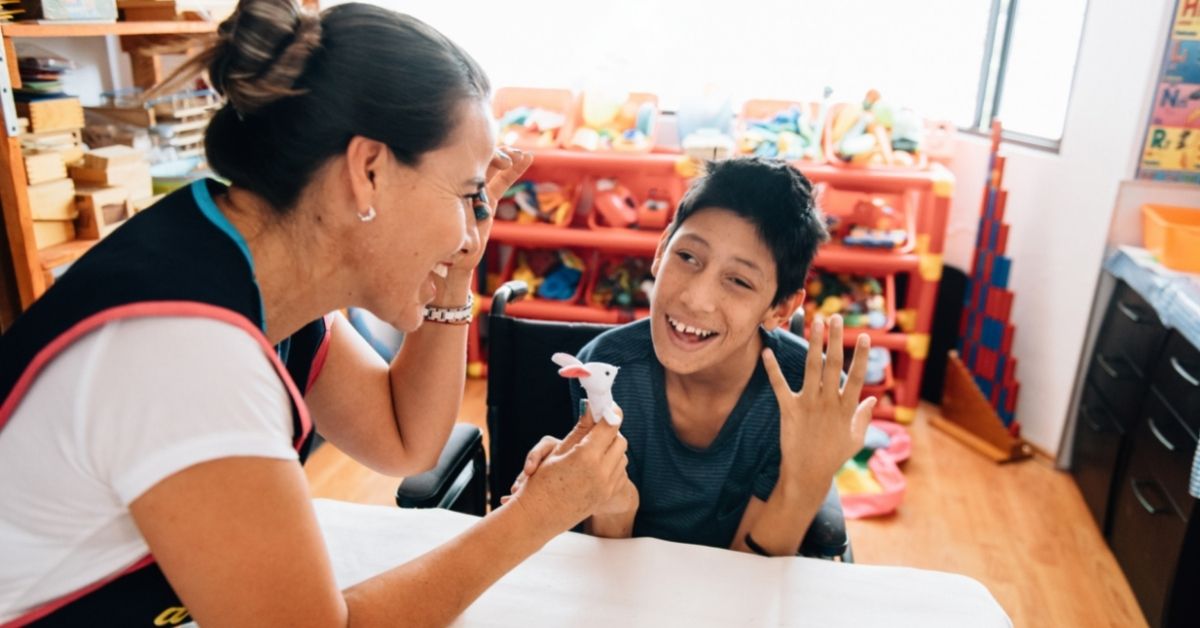Jump to:
-
- Strategy 1: Reaching Families
- Strategy 2: Reaching Providers
- Strategy 3: Reaching Advocates
-
- Organizational Commitment
- Community Collaboration (Partnerships & Support)
- Education (Resources and Communications)
Marketing & Communications Changes
-
- Our Commitment to DEI (public statement)
- Our Core Values (revised to include DEI language)
- DEI Commitment When Convening
- Moving Forward in 2022
-
-
- Hiring
- Post-hire
- Operational Housekeeping
- Finance
-
In 2020 CNF began a journey to better understand how it could play a part in addressing health disparities and inequities experienced by the child neurology community.
We wanted to look inward to understand and evolve our own organizational culture and look externally to learn more about the audiences our programs are currently not reaching and how we could best serve them.
To do this work CNF partnered with an outside organization to provide an audit. The audit began with a definition of diversity, equity, and inclusion listed below:
- Diversity includes all the ways in which people differ, encompassing the different characteristics that make one individual or group different from another.
- Equity is the fair treatment, access, opportunity, and advancement for all people, while at the same time striving to identify and eliminate barriers that have prevented the full participation of some groups.
- Inclusion is the act of creating environments in which any individual or group can be and feel welcomed, respected, supported, and valued to participate fully.

External Review
As part of our DEI journey, CNF contracted with a consulting firm to review our processes and programs through a DEI lens. The organization selected, TerraLuna Collaborative, works on “advancing people-centered learning to build a just and equitable world.” After a 6-month review, the report they shared with CNF leadership and the board of directors included the immediate and future recommended strategies listed below to improve diversity, equity, and inclusion at CNF:
Strategy 1: Reaching Families
The objective of this recommended strategy is to design a responsive peer support and referral program that connects participants with disease- or disorder-specific organizations, community-based health, and human service organizations, and peer support group(s) to form a continuum of care. This process must include a requirement to check-in with families post-referral to track their referral status.
Opportunities for Future Consideration:
- Engage in a website redesign process focused on creating clear user experience pathways, including a pre- post-diagnosis section that is easy to navigate and directs users to relevant providers/resources.
- Conduct an accessibility audit of existing written materials to ensure content is written and displayed in an accessible format and available for translation upon request.
- Create an adaptive communications strategy that includes content tailored to underrepresented populations and delivered through current and future partners.
Strategy 2: Reaching Providers
The objective of this recommended strategy is to establish an advisory board – inclusive of providers from (or serving) underrepresented communities and families – to inform program planning and agenda-setting and review educational resources for cultural responsiveness before distribution.
Opportunities for Future Consideration:
- Create educational opportunities to build the capacity of advanced practice providers (specifically, those serving predominantly underrepresented populations) to identify symptoms that may be indicative of neurological diseases or disorders.
- Develop a series of professional development opportunities for neurologists and advanced practice providers designed to build equity and inclusion capacity and raise awareness about social identities, prejudice, stereotyping, power, privilege, and oppression within healthcare settings.
Strategy 3: Reaching Advocates
The objective of this recommended strategy is to adapt the organization’s partnership development strategy to create a pathway for connecting with and engaging underserved populations. The strategy will be geared toward creating relevant resources and a pathway for care for underrepresented populations in both the diagnosed and pre-diagnostic phases.
Opportunities for Future Consideration
- Develop a series of professional development opportunities for partners to share best practices related to strengthening equity and inclusion strategies to support underrepresented children and families.
- Distribute a survey to partners to develop a deeper understanding of how the organization can best serve as a partner, particularly when it works alongside communities of color and organizations that demographically differ.”


CNF Analysis
The Foundation embraces DEI as part of what we do on a day-to-day basis, and not just a special project, which is why DEI is now integrated into all departmental strategies.
CNF values the work accomplished with TerraLuna but acknowledges that due to fiscal and time constraints, we cannot prioritize all recommendations to happen within the next year. We recognize that this will be an ongoing journey where we continue to grow and strive to be better. While CNF does have a new mission statement focused on supporting medical professionals, we chose to prioritize addressing strategies one (1) and two (2) with a focus on deliverables that improve the experience of families and patients.
The recommendations from TerraLuna are helpful in setting a direction, but we must be attentive to how we engage with the community, ensuring our methods are not exploitative but rather mutually beneficial particularly for communities sharing their insights with CNF. We also want to ensure that we focus in on where we can make an immediate impact on the way we work and strategy 2 may be better served by other organizations. To that end, we have structured our endeavors as outlined in the departmental changes listed below.
Programmatic Changes
In 2022 CNF will use the recommendations made by TerraLuna and data collected during the 2021 needs assessment to implement various changes across programs. CNF does not have a DEI specific program because it is a lens through which our work is viewed and will be woven into the fabric of our deliverables. See a list below of items that will continue DEI work at CNF in the programming area through 2022.
Organizational Commitment:
A commitment to DEI
- Live our revised CNF values to ensure each team member has a focus on diversity, equity, and inclusion in their work
- Establish a patient experience advisory board – inclusive of underrepresented communities and families – to inform program planning and partner with the Board of Directors
- Improve questions asked during needs assessment and program evaluation to learn more about populations we are not targeting (i.e. appropriate race answer selection options)
Community Collaboration (Partnerships & Support):
A commitment to partnerships that can increase access to (and engagement with) groups that have been previously underserved.
- Begin researching how to provide resources in partnership with organizations that support underserved populations, particularly focus on making connections with local organizations and direct service organizations for the populations CNF needs to be serving
- Provide digital resources to families and children living with neurologic conditions to provide access to the internet for access to telehealth, online communities, and educational resources
Education (Resources and Communications):
A commitment to meeting patients and their families where they are to ensure equitable access to education and resource material.
- Design a responsive peer support and referral program that connects participants with disease- or disorder-specific organizations, community-based health, and human service organizations, and peer support group(s) to form a continuum of care. We will do this by partnering with Unite Us a social determinants of health platform to make warm hand off referrals directly to local organizations and be responsive to the community’s needs.
- Begin to work with vendors to provide tools and resources in languages besides English
- Complete an accessibility audit by the end of 2021 starting with transition of care materials and begin to implement recommendations across all assets in 2022


Marketing & Communications Changes
In 2021, Marketing & Communications took the lead on working with our team to evolve our Core Values and build out an official statement on our commitment to DEI.
This was part of our early efforts to show the importance of DEI work both internally at CNF, but also externally in how we engage with the broader child neurology community. In the end, we believe it was imperative that the work not be a standalone effort but instead ingrained in everything we do.
Our Commitment to DEI (public statement)
At Child Neurology Foundation, we pride ourselves on responding quickly and adeptly to the challenges facing children living with a neurologic condition. And yet, we recognize that we need to work harder to create inclusive opportunities for all children and families to access and receive the quality of care they deserve.
Not to check a box, or because it’s trendy, but because it’s our ethos. Our vision.
And we believe that each of us has a role to play. As an organization, we are currently on a journey of self-reflection. To better understand our shortcomings and identify the actions we need to take to live up to our commitment to the entire child neurology community.
The time to act is now. Over the coming months we’ll be working on:
Cultivating an Inclusive Organization
We will work to attract and retain a workforce that reflects the diverse communities we serve by appreciating the values, experiences, and abilities of everyone we employ.
Providing Culturally Responsive and Accessible Resources
We will ensure equitable care for all children by providing culturally responsive and accessible resources for all children and families.
Driving Community Collaboration
We will develop relationships and partnerships to ensure that our actions are authentic, transparent, and taken with the utmost integrity.
Importantly, we know that this change will not happen overnight. But we are committed to sharing our progress with you, moving beyond words, striving toward action, and embedding this work into our DNA.
We hope that you’ll join us on this journey.


Our Core Values (revised to include DEI language)
Professionalism:
We treat others as they would want to be treated. We are collegial and respectful in our professional relationships. We are dedicated to being innovative and expanding our knowledge through continuous learning. We strive to be inclusive of the perspectives of others across race, gender, age, religion, identity, or lived experience. We honor and respect difference and diversity in all forms and seek to actively foster a workplace and community where all are empowered to be their authentic selves, and feel appreciated for their values, experiences, and abilities. And above all, we strive to exhibit excellence in our work.
Integrity:
We are accountable for our commitments and our actions. We are committed to ensuring the interests of the children and families we serve come first. We promote honesty and transparency in our relationships with each other, our collaborators and the broader community to ensure that the work we do each day meets the needs of, and is accessible to, our entire community. We pledge to be an ally in our efforts, committed to listening and learning first. And based on what we hear, evolving, standing up, speaking out, and amplifying our shared voice and acting in support of our diverse community when warranted.
Collaboration:
We work humbly to identify and understand the urgencies and challenges facing our shared community; we know our challenges cannot be overcome alone. We actively seek relationships and partnerships that reflect the diversity of our community and help us serve more effectively, embracing differences in race, ethnicity, age, national origin, gender expression and sexual identities, physical and/or intellectual disabilities, religious or other philosophical beliefs, socioeconomic status, size, or other markers of a person’s humanity. And whenever possible, we earnestly work together on the actions, programs, and initiatives in which we engage. We want to go farther, so we go together.
Stewardship:
We are committed to being good listeners and lifting up voices in the community, especially those from historically underserved and under-represented groups. We are respectful stewards of the relationships and stories shared with us. We are empathetic, compassionate, and positive. And we are committed to act in service to the needs of the entire child neurology community, by providing culturally responsive and accessible resources for all children, families, and members of our community.
DEI Commitment When Convening
As an example of external use, we will send our values, along with a lexicon of acceptable language to use when referring to gender, color, and ability, to all groups we convene. With this, we intend to set a baseline of respect and inclusion early on. We believe by doing this it will help us communicate better with ourselves and others and will facilitate proactive inclusion by trying to eliminate feelings of exclusion by careless /inadvertent use of outdated words. This statement is in draft stages, along with Standards of Practice for implementation.
Moving Forward in 2022
In 2022, we will leverage findings from our accessibility audit, our needs assessment, and the Patient Experience Bureau (PEB) to improve the inclusivity of our marketing and communication efforts.
This will include:
- Developing language specific hubs on our website (Spanish up first) to reach communities where English is a second language
- Ensuring the educational materials and content we create is optimized for accessibility
- Evolving our website to be more inclusive, beyond basic accessibility plug-in integration
- Identifying and leveraging outlets to reach beyond our traditional audiences and expand the community we serve with our programming


Operational Changes
(Note: Operations also includes the Human Resources and Finance departments)
From June of 2020 through April of 2021 all CNF staff met informally once a month to have facilitated discussions about different DEI topics. There was often homework to be done, and the team could use office hours to do the work. Ultimately, this work culminated in the establishment of a more formal DEI staff committee whose goal is to create ongoing opportunities for staff to learn about and celebrate the history and accomplishments of historically marginalized groups. The committee will also recommend changes to the employee handbook and other internal documents as needed, to ensure we continue to live the DEI core values.
Below is a list of Operational projects that have changed or are changing due to our focus on DEI integration into our day-to-day:
Hiring
What we are currently doing:
- Posting positions to a diverse array of places including Historically Black Colleges
- Eliminating able-ist language
- Including our Commitment to DEI Statement on all job descriptions
- Paying attention to our vendors and trying to select more minority- and women-owned businesses with whom to partner. For example, we recently selected a hiring search firm called Envision Nonprofit Consulting which is co-founded and led by a woman and actively integrates DEI best practices into both their search and their interview processes.
In process:
- Blind names / gender / race and anything that might identify those characteristics in the hiring process
- Standardizing questions for interviews so the same questions are asked to each candidate applying for a position and using a rubric for grading the responses
- Candidate “analysis” rubric for hires based on best practices
Post-hire
What we are currently doing:
- Quarterly Training Modules that are DEI specific
To do:
- Yearly DEI Workshop
- Onboarding refinements
- Review process refinements
- Feedback process refinements
Operational Housekeeping
- Maintenance of Statement of Values
- Maintenance of Lexicon
- Yearly audit of DEI Processes
- Changed department goals to include the following:
- Continue employee “Pulse Surveys” that solicit comments and feedback on matters including DEI and how the foundation is doing to incorporate these values
- Further build out of HR best practices with yearly review, in coordination with our HR partners at our PEO Trinet.
- Incorporate equity, diversity, and inclusion (DEI) best practices into HR processes, and routinely provide DEI training to staff.
- Ensure transparency between staff and the Foundation through the development and maintenance of current organization chart, title structure with key proficiencies, and salary bands by title / department.
Finance
To do:
- Audit existing vendors to identify allocation of accounts payable activity by demographic (e.g. woman owned businesses, minority owned businesses)
- Create a target for expanding the demographics of the vendor pool
- Create an RFP process that requires a diversity component
- Review finance policies, such as the investment policy, for other opportunities to incorporate DEI values.


Board Changes
We understand the importance of having a Board of Directors that is representative of the communities that we are working to serve. We will continue to work to recruit board members from various lived experiences; and guard against tokenism. In 2021, CNF executed our first external BOD nomination process. Language from this year’s recruitment is listed below:
“We welcome nominees from any background – including parents, caregivers, physicians, nurses, allied health professionals, youth leaders, business professionals, government workers, community-based service providers – to support our work, bring a diversity of lived experiences, skills, and personal attributes that enrich our awareness, broaden our reach, and helps ensure that we serve the entire child neurology community.”
On October 1, 2021, CNF’s new President began his term (elected in 2019). Dr. Anup Patel is the first person of color to serve as CNF’s President.
